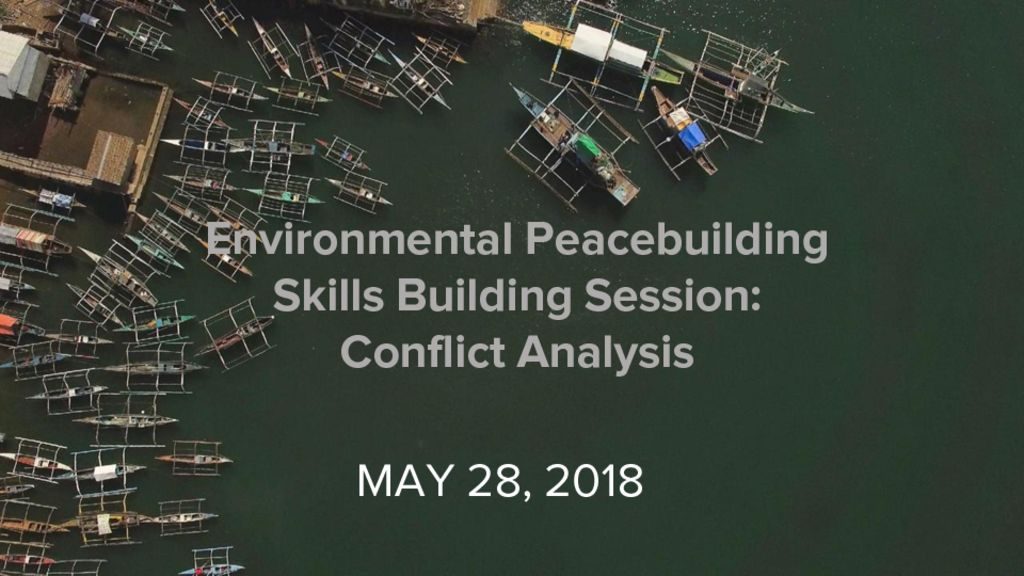23 May Environmental Peacebuilding Skills Building Session
Successful biodiversity conservation is a complex endeavor, hinging on women and men sustainably managing lands and natural resources. For 30 years, Conservation International (CI) has delivered successful conservation outcomes by empowering rural Indigenous Peoples and Local Communities to responsibly and sustainably care for nature. Through partner communities, work is done with men and women at all scales to strengthen their voices to advocate for conservation and the myriad benefits for humanity. CI and partners aims to foster effective, locally-led governance of biodiversity and equitable access to and sharing of nature’s benefits.
At the community level, conflict is a significant threat to men, women and children who rely on natural resources for their very survival. Environmental degradation has been directly used as a weapon of war, ecosystems have been physically destroyed or polluted, natural assets have been liquidated by local and displaced populations attempting to survive socio-economic disruption, and environmental management, oversight and enforcement structures have collapsed. These impacts from conflict pose significant risks to the communities’ health, livelihoods and security.
This workshop for community leaders and members contributed to the development of skills in conflict analysis and consensus-building. It’s aim was to increase awareness of multiple dimensions of conflict in natural resource management, and help community members build basic skills in mapping root causes of conflict through case study exercises focused on forest communities in Bolivia and Peru. The workshop included an overview presentation on existing approaches to environmental peacebuilding initiatives for communities, followed by a skills building session on conflict analysis.



